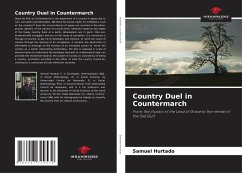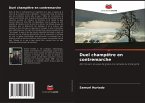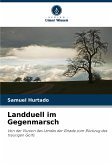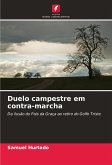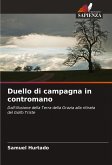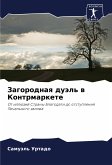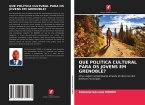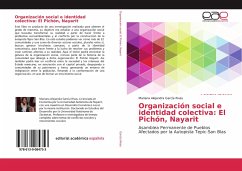Duelo de País en Contramarcha is the experience of a country in agony due to ruin, corruption and demolition. Will there be human rights for institutions such as the country's? Even the circumstances of agony are inserted in the ethno-psychic genesis of the trauma of a-social birth, hembrist impasse and utopia of the happy country. Even at a party, Venezuelans are in panic, they are burdened with stragglers and are on the verge of starvation. It is necessary a therapy of country, to get rid of ideologies and violence, to reach the vision of country through the learning of its acceptance. It remains the destruction in affirmative to leverage on the function of an innovated culture to 'move' the country as a world. Interpreting Archimedes, the text is exposed in scale of demonstration to understand the technique that with its mathematical logic can promote the movement towards the project of society as consistency of being a country, promotion inscribed in the ethics of what the country should be, covering as a conclusion all Latin American countries.
Bitte wählen Sie Ihr Anliegen aus.
Rechnungen
Retourenschein anfordern
Bestellstatus
Storno

